Thai zoo home to viral baby hippo Moo Deng is patenting the pygmy
Zookeepers said they never imagined the newborn pygmy hippo would become an internet megastar.
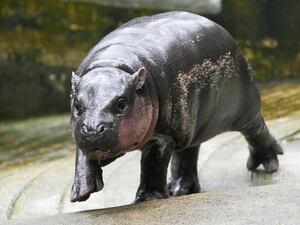
Only a month after Thailand’s adorable baby hippo Moo Deng was unveiled on Facebook, her fame became unstoppable both domestically and internationally.
Zookeeper Atthapon Nundee has been posting cute moments of the animals in his care for about five years.
He never imagined Khao Kheow Open Zoo’s newborn pygmy hippo would become an internet megastar within weeks.
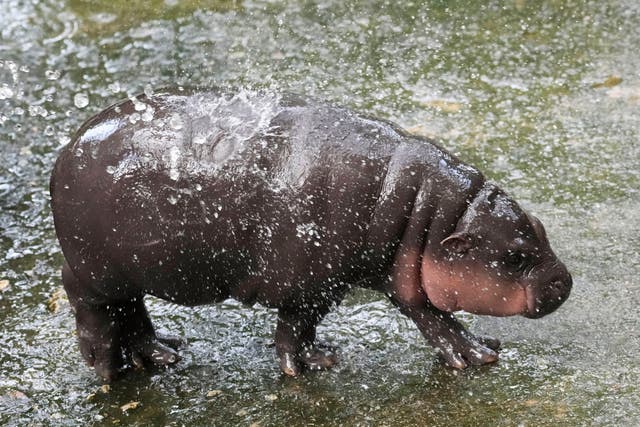
Visitors travelled from near and far for a chance to see the pudgy, expressive two-month-old in person at the zoo about 60 miles south-east of Bangkok.
The pit where Moo Deng lives with her mother, Jona, was packed almost immediately, with people cooing and cheering every time the pink-cheeked baby animal made skittish movements.
“It was beyond expectation,” Mr Atthapon told The Associated Press.
“I wanted people to know her. I wanted a lot of people to visit her, or watch her online, or leave fun comments. I never would’ve thought (of this).”
Moo Deng, which literally means “bouncy pork” in Thai, is a type of meatball.
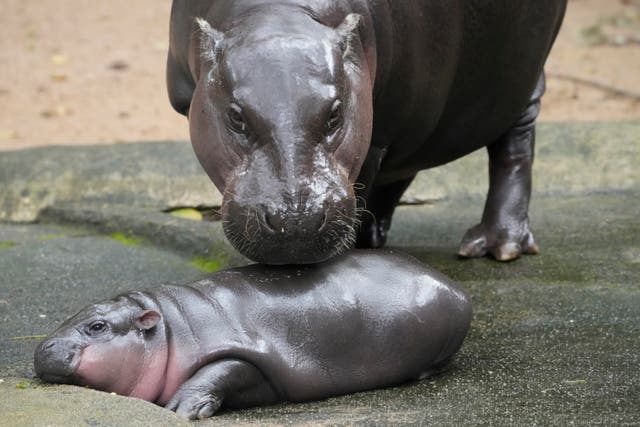
There is also a common hippo at the zoo named Kha Moo (stewed pork leg).
“She’s such a little lump. I want to ball her up and swallow her whole!” said Moo Deng fan Areeya Sripanya while visiting the zoo on Thursday.
Already, Moo Deng has been made into memes. Artists are drawing cartoons based on her.
Social media platform X, formerly Twitter, even featured her in its official account’s post.
With all that fame, zoo director Narongwit Chodchoi said they have begun patenting and trademarking “Moo Deng the hippo” to prevent the animal from being commercialised by anyone else.
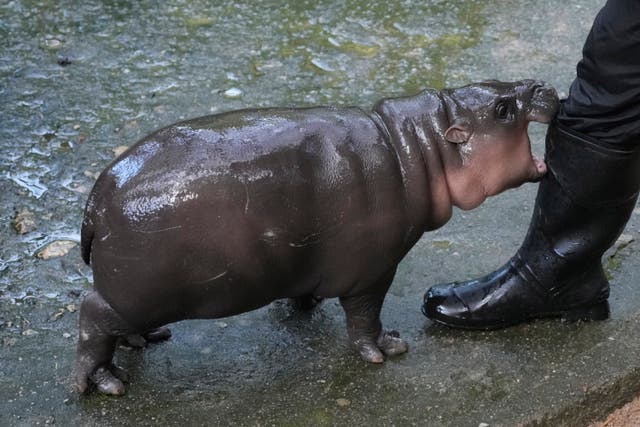
“The benefits we get will return to the zoo to improve the life of all animals here.”
The zoo sits on 800 hectares (almost 2,000 acres) of land and is home to more than 2,000 animals.
It runs breeder programs for many endangered species like Moo Deng’s.
The pygmy hippopotamus that is native to West Africa is threatened by poaching and loss of habitat. There are only 2,000 to 3,000 of them left in the wild.
To help fund the initiative, the zoo is making Moo Deng shirts and pants that will be ready for sale at the end of the month, with more merchandise to come.
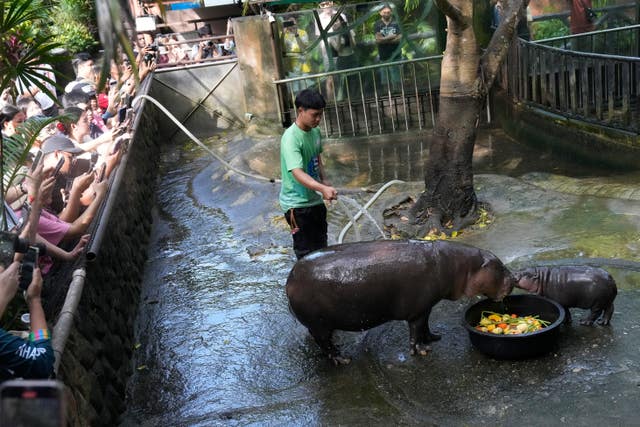
Mr Atthapon, who has worked at the zoo for eight years taking care of hippos, sloths, capybaras and binturongs, said baby hippos are usually more playful and energetic, and they become calmer as they get older.
The zoo saw a spike in visitors since Moo Deng’s fame — so much that the zoo now has to limit public access to the baby’s enclosure to five-minute windows throughout the day during weekends.
Mr Narongwit said the zoo has been receiving over 4,000 visitors during a weekday, up from around just 800 people, and more than 10,000 during a weekend, up from around 3,000 people.
But the fame has also brought some hostile visitors to Moo Deng, who only wakes up ready to play about two hours a day.
Some videos showed visitors splashing water or throwing things at the sleeping Moo Deng to try to wake her up.
The hippo pit now has a warning sign against throwing things at Moo Deng — posted prominently at the front in Thai, English and Chinese.
Mr Narongwit said the zoo would take action under the animal protection law if people mistreat the animal.
But clips emerged of people treating Moo Deng poorly, and the backlash was fierce.
The zoo director said that since then, they have not seen anyone doing it again.
For fans who cannot make the journey or are discouraged after seeing the crowds for Moo Deng, the Khao Kheow Open Zoo set up cameras and plan to start a 24-hour live feed of the baby hippo in the coming week.





